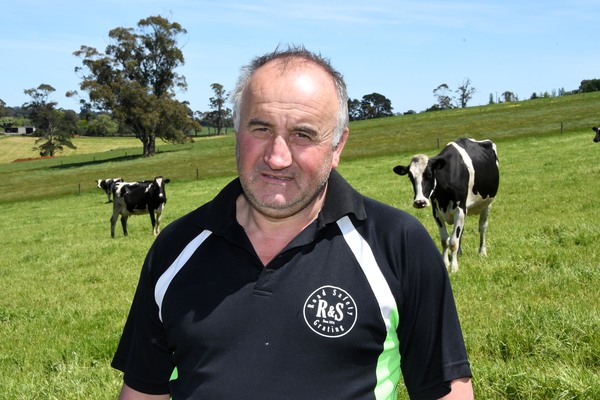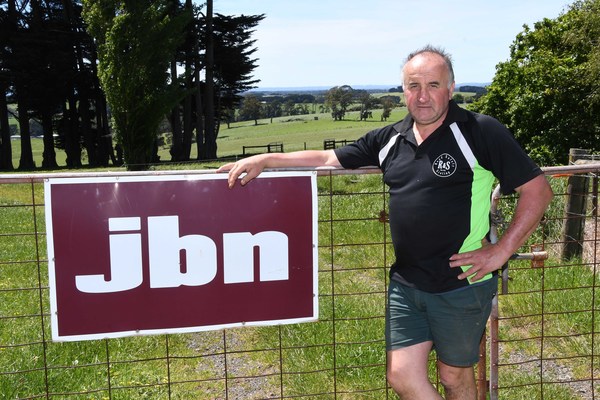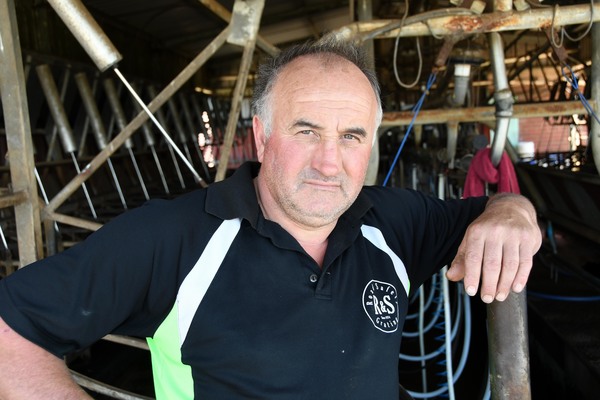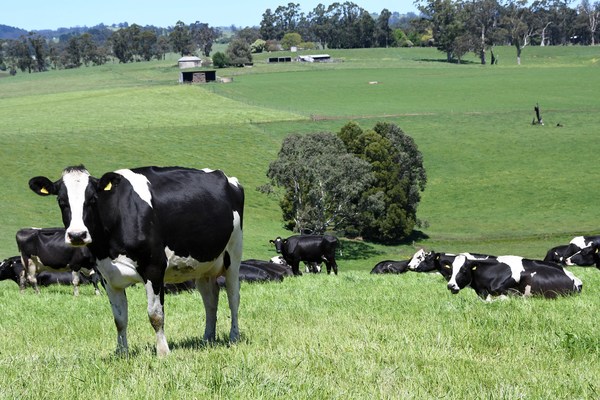Decades of mental ill-health had Joe Meggetto on the edge. But since opening up to friends and family, he believes he knows the tool that might help other farmers who are battling their own demons, as he told DANIELLE KUTCHEL.
“I want to talk to someone who has had cow shit on their boots!”
Back in the mid-90s, Warragul South dairy farmer Joe Meggetto used to carry a bullet around in his pocket.
It wasn’t for self-defence; it was his potential route out of life.
And looking back now, he believes that’s an indication that he has been struggling with his mental health for longer than he first thought.
Mr Meggetto’s brother “got a sniff” of the problem, and Mr Meggetto admitted to him that he felt like perhaps one day putting the bullet to use.
“By the time I got the cows in the shed to milk, there were two police officers at my milking shed. They confiscated our guns, they took the bullet and had a chat to me.
“When I look back, is that an indication of when it started? Who knows? I don’t know. I’ve been struggling ever since,” Joe says.
But his watershed moment would come later, on a holiday with his wife’s family.
“I felt right out of it, I didn’t feel like mingling. My wife came to bed later on and found me broken down in tears, and that was the first time I really opened up to her about it,” he explains.
“I told her I couldn’t see a light at the end of the tunnel. She asked me to seek help and talk to friends about it but I felt embarrassed – and that’s the stigma we’re trying to break down.”
After opening up to his wife and best man, Mr Meggetto made an appointment to speak with a doctor in Traralgon.
But within minutes of stepping foot in the office, he knew the questions the doctor was asking weren’t hitting the right spot.
He turned to his GP, also a neighbour of his, and this time it felt right – because his GP understood the life of a dairy farmer.
This understanding is a core tenet of Mr Meggetto’s message to others.
“The message I’m really trying to get across is, you need to go and see somebody that knows your industry,” he explains.
“I don’t care if you grow peanuts, oranges, or cherries. If you’re struggling with mental health, you don’t want to talk to someone in an office in a suit that doesn’t have a clue what your industry is about.
“I want to talk to someone who has had cow shit on their boots!”
Mr Meggetto believes that mental health support should be tailored to those who are seeking it. Since taking that first step of talking to his loved ones, he has given talks to industry bodies like Dairy Australia and promoted his message on various television shows. He was also featured in a special Gippsland Jersey calendar focusing on farmers and mental health.
He wants to see a dedicated person in each industry who can provide the support workers might need.
“I strongly believe that each milk company we supply should have somebody to talk to. Nine out of ten times, the stress comes from the industry you’re in. We need people there on standby – and I know it’s difficult – but somebody that knows each and every industry.”
Since going public with his story Mr Meggetto says people ring him and drop in for a chat all the time now, and his response is always the same: talk about the problem.
“I really encourage them to take that first step. It’s not embarrassing, it’s not weak. I call it strength. I was very embarrassed to, but once you do, it’s a weight off your shoulders.”
Mr Meggetto’s experience is sadly not unique. Farming is recognised as an industry with a high suicide risk.
Social factors, the weather and climate, the daily grind of farm life and financial pressures have been found in various studies to impact on farmer mental health.
The National Centre for Farmer Health notes a range of factors unique to farming can also exacerbate mental ill-health, including isolation or limited availability of help services locally, or even the practicality of being able to leave the farm to see someone for help.
A representative of the National Farmers Federation pointed to research by AgHealth Australia that noted “mental health issues are important for the farming community with male farm owners and managers dying from suicide at around twice the rate of the national average of other males“.
However, the representative added that help is available for those who are struggling, and recommended Beyond Blue and Lifeline as possible avenues of support.
Farmsafe Australia provides a number of resources specific to farming to help farmers recognise the signs and symptoms of mental illness, including the ‘Managing the Pressures of Farming’ handbook.
For Mr Meggetto, sharing his story publicly has helped, along with having a good family base and support from his wife and sons.
He says love and friendship are also keys to winning the battle.
“I’m not scared to shake someone’s hand and give them a hug now. Hopefully it’s heading in the right direction and we can break that stigma,” he says.
“People who are struggling need to know there’s someone out there prepared to listen to you and want to listen to you. You’re cared for, you’re loved.”
He’s also learned to put himself first. If he is tired, he will take a nap; if something needs to be done on the farm but there’s no time left in the day, there is always tomorrow.
He’s not home free yet; Mr Meggetto admits he still has dark days, weeks and even fortnights. But with time, he has found the joy in farming again.
“You’ll never get over it; you’ve just got to manage it, and hopefully she’ll be right.”
If this story has raised any issues for you, please contact:
BeyondBlue on www.beyondblue.org.au or 1300 22 4636
Lifeline Australia on www.lifeline.org.au or 13 11 14
Mensline Australia on www.mensline.org.au or 1300 78 99 78










